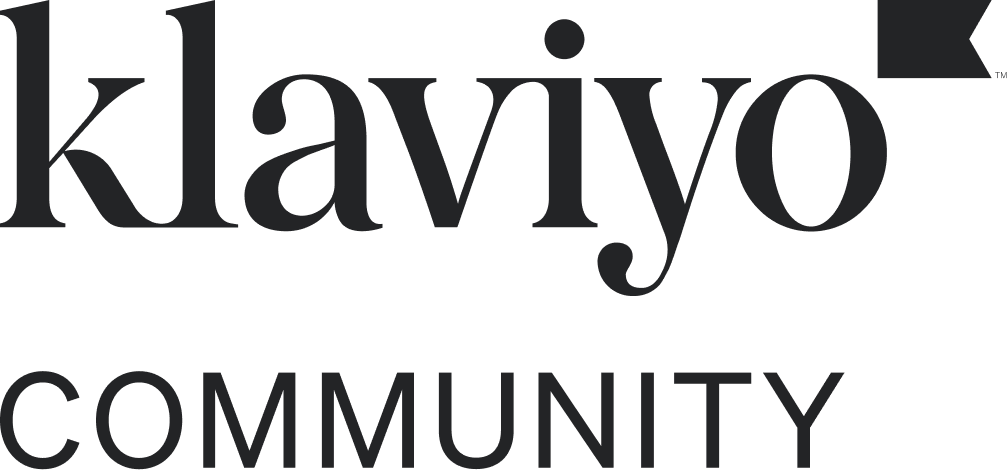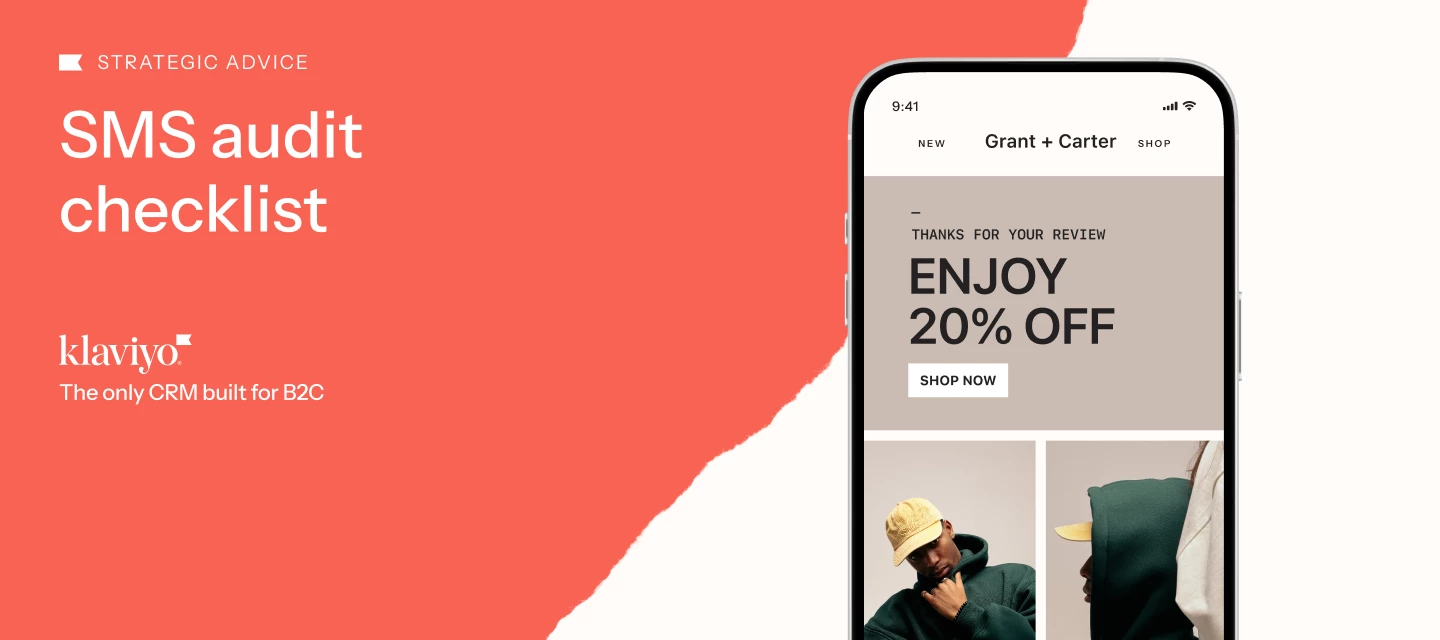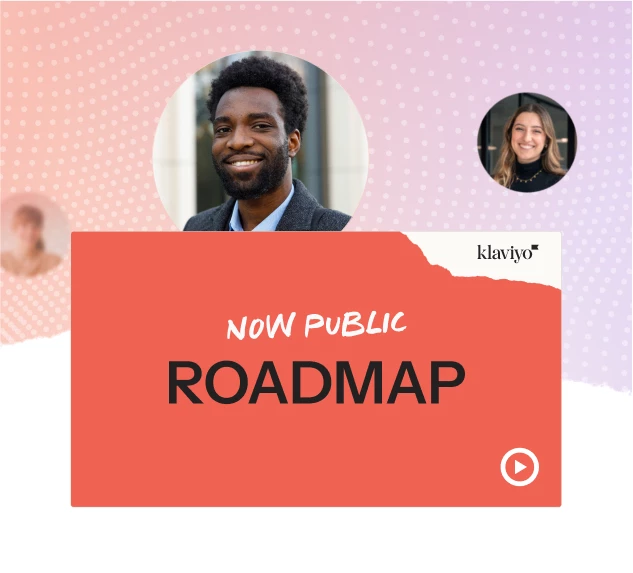Hey everyone! I’m an SMS strategist at Klaviyo with 5 years of experience helping brands grow through smarter omnichannel strategies. Excited to share some tips and learn from this community too.
Is your SMS signup form working hard enough? Here's how to tell.
If you’re investing in SMS but not seeing strong list growth, your signup form might be the reason. Acquisition fuels revenue, so form optimization and expansion is a great first step to improve list growth and overall SMS performance.
To help you get a clear picture of where your form stands (and how to improve it), use these benchmarks:
- Below 1% subscribe rate → needs improvement
- 1%–3% subscribe rate → average performance, room for optimization
- Above 3% subscribe rate → above average, fine-tune via testing
In this post, we’ll walk through how to audit your current setup, what to check at each benchmark level, and what changes can help you grow your list faster—just in time for your next big campaign.
Initial list growth review
Before jumping into the fancy stuff, let’s make sure your basics are solid. These foundational list growth strategies are the core of your success—they set you up for everything else to work smoothly and grow bigger over time. Make sure the following are in place, and
- Review for compliance
- Mobile-specific TOS
- Updated Privacy Policy
- SMS Disclosure Language
- Understanding SMS Consent Collection
- Multi-Step Form - Targeting Net New site visitors
- SMS-Only Form - Targeting Existing Email Subscribers
- SMS Consent at Checkout - available for Shopify, WooCommerce, BigCommerce, Magento2 & PrestaShop
Make sure these foundations are in place and use the recommendations below to optimize and build from there.
Below 1% subscribe rate — needs improvement
This indicates foundational issues with your form setup, targeting, or value proposition. Start with the following:
- Enable smart opt-in for mobile to streamline the process and avoid friction.
- Review display and targeting settings:
- A 0% subscribe rate could mean the form isn't appearing due to misconfigured settings or an integration issue
- To grow net-new Email & SMS subscribers: Don’t show to existing Klaviyo profiles
- To capture SMS from existing email subscribers: Show to email subscribers only
- Use teasers to increase engagement before the form loads.
- Ensure SMS and email subscribers are being routed to separate lists for proper segmentation.
- Use legible fonts and high contrast — Ensure all text is easy to read, especially on mobile.
- Eliminate visual clutter — keep the design clean with plenty of spacing and limited text/images.
- Match form branding to your website — fonts, colors, tone, and design should be consistent.
- Make your offer clear and compelling — place it prominently at the top (e.g., “Get 15% Off”).
- If you aren’t offering an incentive, highlight the value of being an SMS subscriber
- Align your offer with your Welcome Series:
- Use consistent promo codes if offering the same across email and SMS.
- Clearly highlight any SMS-exclusive incentives on the form if applicable.
1% – 3% subscribe rate — average performance (room for optimization)
This is a healthy baseline, but there’s room to improve through thoughtful adjustments:
- Include a concise SMS value prop that communicates the benefit of subscribing (e.g., early access, exclusive promos), not just the discount
- Optimize for mobile: Guide
- Design mobile-specific versions of your forms to ensure an optimized experience for small screens.
- Enable Smart Opt-In to reduce friction and streamline the mobile signup process.
- Use branded, visually engaging imagery that grabs attention without overwhelming the user.
- Prioritize readability and usability by using clear fonts and large tap targets suited for mobile devices.
- Place the signup offer and SMS value proposition prominently so users see it immediately.
- Ensure the form is fully visible and functional on mobile without requiring users to scroll.
- Use different imagery and/or design for SMS-only forms to look different from multi-step forms to reduce confusion and prevent early drop-off.
- Remove “decline” buttons — the “X” in the corner is sufficient.
Above 3% subscribe rate — above average (fine-tune via testing)
At this level, you’re doing well — focus on refining and scaling performance through testing and personalization:
Run A/B tests to identify top-performing variables:
- Offer type: percentage off vs. free gift
- Copy: headline, CTA, and body text variations
- Visuals: product-centric vs. lifestyle imagery
- Brand voice and tone
- Test micro-yes steps: Compare performance with and without preference collection steps.
- Use of gamification elements (spin-to-win, counter block, countdown timer)
AI Powered optimization: AI tests multiple versions of your form to find the highest-converting display time.
- Automatically test multiple versions of your form.
- Optimize display timing, layout, and content based on real-time performance.
- Increase list growth and revenue through continuous data-driven improvements.
Real Life Example: Tata Harper grows sign-up form submissions 65%+ with Klaviyo AI
Expand your form strategy:
- Exit Intent
- SMS Campaign
- Social Media
- QR Codes
- In-Person Signup
Final Note:
Use these benchmarks to review your current setup and steer your next round of optimizations. With Q4 just around the corner, even small improvements now can pay off big when traffic and purchase intent peak.
Additional Resources:
- YouTube: Increase SMS sign-ups with Klaviyo mobile-optimized forms
- Klaviyo Blog: 14 tips for growing your SMS lis
- Klaviyo Academy: Best practices for SMS list growth
Let me know in the chat:
- How has your brand tested to improve SMS acquisition?
- What other SMS signup strategies do you employ?



![[Academy] SMS Strategy Certificate Forum|alt.badge.img](https://uploads-us-west-2.insided.com/klaviyo-en/attachment/2f867798-26d9-45fd-ada7-3e4271dcb460_thumb.png)



